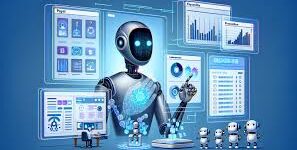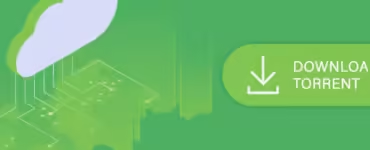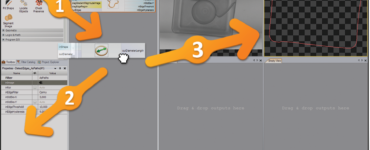Are you looking for ways to boost your business’s efficiency and productivity? Do you want to improve your customer experience and make better decisions? If so, you should consider investing in IoT development. IoT development is a powerful tool that can help you transform your business today.
What is IoT Development?
IoT development is the process of creating and integrating internet-connected devices and sensors into various systems and applications. These devices and sensors collect data, which is then analyzed to provide insights that can help businesses make better decisions, improve efficiency, and enhance customer experience.
Benefits of IoT Development for Businesses
IoT development has several benefits for businesses, including:
Improved efficiency and productivity
IoT devices can automate repetitive tasks, monitor equipment, and optimize processes, leading to increased efficiency and productivity.
Cost savings
IoT devices can help businesses save money by reducing energy consumption, preventing equipment breakdowns, and minimizing downtime.
Improved customer experience
IoT devices can provide real-time data on customer behavior and preferences, enabling businesses to personalize their products and services to meet customer needs.
Better decision-making
IoT devices can provide businesses with data-driven insights that can help them make informed decisions and improve their operations.
IoT Development Process
IoT development involves several stages, including:
Ideation and Conceptualization
The first stage of IoT development involves generating ideas and conceptualizing the product. This stage involves researching the market, identifying customer needs, and defining the product’s features and functionalities.
Prototyping and Testing
The next stage of IoT development involves building a prototype of the product and testing it to ensure that it meets the desired specifications and requirements.
Development and Integration
The third stage of IoT development involves developing the product and integrating it into the existing system. This stage involves selecting the appropriate hardware, software, and communication protocols.
Deployment and Maintenance
The final stage of IoT development involves deploying the product and maintaining it over its lifecycle. This stage involves monitoring the product’s performance, upgrading it as necessary, and ensuring its security and privacy.
IoT Development Technologies
IoT development relies on several technologies, including:
Hardware
IoT hardware includes sensors, actuators, and microcontrollers, which collect data and perform actions.
Software
IoT software includes applications, middleware, and cloud platforms, which process and analyze data and enable communication between devices.
Communication Protocols
IoT communication protocols include Wi-Fi, Bluetooth, Zigbee, and LoRaWAN, which enable devices to communicate with each other and with the communication.
Data Analytics and Machine Learning
IoT devices generate large amounts of data, which can be analyzed using data analytics and machine learning tools to extract meaningful insights.
Use Cases of IoT Development in Business
IoT development has several use cases in various industries, including:
Manufacturing and Industrial Automation
IoT devices can be used to monitor equipment performance, track inventory levels, and optimize production processes in manufacturing facilities.
Healthcare and Remote Patient Monitoring
IoT devices can be used to monitor patients’ vital signs, track medication adherence, and enable remote consultations, improving patient outcomes and reducing healthcare costs.
Smart Homes and Buildings
IoT devices can be used to automate lighting, heating, and air conditioning, and monitor energy consumption, leading to energy savings and improved comfort.
Transportation and Logistics
IoT devices can be used to track vehicles, optimize routes, and monitor cargo conditions, leading to improved efficiency and cost savings.
Challenges and Risks of IoT Development
IoT development also poses several challenges and risks for businesses, including:
Security and Privacy
IoT devices are vulnerable to security threats, such as hacking and data breaches, which can compromise sensitive data and lead to financial losses and reputational damage.
Interoperability and Standardization
IoT devices use different communication protocols and standards, which can make it challenging to integrate them into existing systems and ensure interoperability.
Scalability and Complexity
IoT development can be complex and expensive, particularly when scaling up to large-scale deployments.
Integration with Legacy Systems
IoT devices must be integrated with existing legacy systems, which can pose compatibility and integration challenges.
Best Practices for IoT Development
To ensure successful IoT development, businesses should follow several best practices, including:
Secure by Design
Security should be built into the design of IoT devices and systems from the outset, rather than added as an afterthought.
Data Protection and Privacy by Default
IoT devices should be designed to protect user data and privacy by default, rather than relying on users to configure them.
Interoperability and Standardization
IoT devices should adhere to industry standards and communication protocols to ensure interoperability and ease of integration.
User-Centered Design
IoT devices should be designed with the user in mind, considering their needs, preferences, and capabilities.
Future of IoT Development
IoT development is expected to continue growing in the coming years, with more businesses adopting IoT technologies to improve their operations and competitiveness. The development of 5G networks is also expected to drive the adoption of IoT devices, enabling faster and more reliable communication.
Conclusion
IoT development is a powerful tool that can help businesses improve their efficiency, productivity, customer experience, and decision-making. However, it also poses several challenges and risks that businesses need to be aware of and mitigate. By following best practices and considering use cases and challenges, businesses can unleash the power of IoT development and transform their operations today.
Also Read: https://iotwiser.com/iot-hidden-menu/










